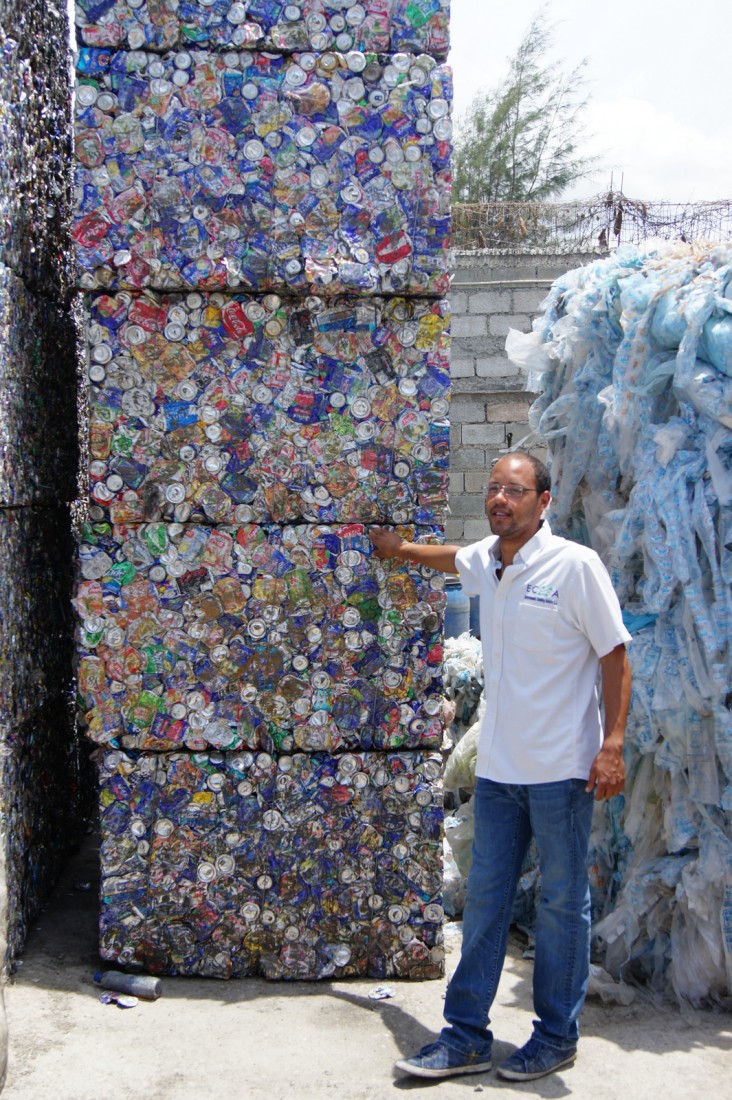Home » Reports & Data » Progress » Transforming Lives » Generating Income While Keeping Streets Clean in Haiti

Edouard Carrié, a Haitian entrepreneur, is taking steps to simultaneously address the issues of sanitation and employment.
Emile Manigat/USAID
Entrepreneur expands recycling business
"My company now has the capacity to increase its individual collectors from 6,000 people to up to 20,000."
Haiti faces many challenges—some of the most serious being unemployment and waste management. For the latter, the growing piles of plastic, tin, aluminum, cardboard, Styrofoam and other trash pollute and diminish the natural beauty of the country's landscape.
Edouard Carrié, a Haitian entrepreneur, is taking steps to simultaneously address the issues of sanitation and employment. The 25-year-old created a recycling business, Environmental Cleaning Solutions S.A. (ECSSA), in 2010, as a way to keep the streets, canals and vacant lots of Port-au-Prince clean, as well as to provide income to Haiti's poorest households.
Since its founding, ECSSA has grown to provide extra cash to over 6,000 Haitians who deposit bags of discarded bottles at 65 collection points throughout the Port-au-Prince region. In 2012, ECSSA collected, compacted and shipped nearly 300 million plastic bottles, close to 1 million bottles every day, for further processing into recycled plastic pellets that are used in over 120 countries to make everything from T-shirts to tables.
The volume of recycled bottles already attained by ECSSA may seem like a lot, but Carrié emphasized that much more can be done to meet the potential for recycling trash in Haiti. To raise capital for the next phase of business expansion, Carrié applied for a matching grant through the Leveraging Effective Application of Direct Investments (LEAD) Business Plan Competition, funded by USAID and implemented by the Pan American Development Foundation (PADF). The competition, which provides grants that match eligible companies’ own investments up to $200,000, has provided ECSSA with the capital to increase the number of collection points and expand compacting capacity, including creating a second base in the Cap Haïtien area in northern Haiti.
“USAID and PADF’s LEAD investment is allowing ECSSA to ramp up collection and provide more Haitian households with the opportunity to earn income,” Carrié said. “My company now has the capacity to increase its individual collectors from 6,000 people to up to 20,000. Additionally, the increase in collection points and processing capacity provide entrepreneurs the opportunity to grow their own businesses by serving as intermediary plastic collectors and suppliers for ECSSA.”
By providing income to thousands of the poorest households, creating the opportunity to establish new enterprises in the supply chain, introducing new technologies and improving the environment, ECSSA is an inspiring example of the entrepreneurial spirit of the Haitian people.







Comment
Make a general inquiry or suggest an improvement.